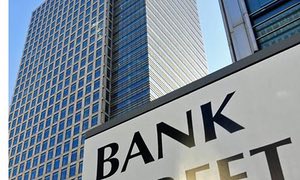
Investment Banking Careers UK
 Canary Wharf's concentration of investment banks is attracting high-flying graduates. Photograph: Toby Melville/REUTERS
Canary Wharf's concentration of investment banks is attracting high-flying graduates. Photograph: Toby Melville/REUTERS
Investment banking recently topped the Graduate Careers Survey's dream jobs list. Graduates working in Canary Wharf explain how they got a foot in the door
The fact that I started this Graduate Insights series with only two pieces back in November says a lot about the graduate job market and how rapidly things are changing. Just as I was penning the final words to my theatre careers piece, in came a six-month offer on a style editor's desk and I had to cut any further Graduate Insights short.
It was irresistible. I was waving goodbye to CVs and saying hello to CK and Hugo Boss.
What's changed is that in November the graduate job market was crippled by unemployment and overcrowding: there was a widespread feeling of doom and gloom and my offer of a short-term role was a rare collector's item. But six months down the line and it now seems a job offer isn't really anything special at all.
One survey section that caught my eye was a list of desired graduate roles. At the top of that dream list was investment banking.
To find out what it takes to stand out in this industry, I went searching for quality graduate insight at the country's banking hub at Canary Wharf in London. I met Jared Cole, a recently graduated business analyst for the global investment bank Citigroup.
The first thing he mentioned for success in the industry was the last thing I thought big city employers would be after: "Having an all-round character and an outgoing personality are two of the most valuable tools in your box and it's all because networking and meeting is where the business often gets done."
Jared reminded me that investment banking is wholly dependant on teamwork and communication. Proving that you have the skills to speak your mind and bond and socialise with those around you will show that you're capable of fitting into a financial system based on people.
"You'll need to know how to handle all types of employees in different situations; in this industry you'll be dealing with so many people on a day-to-day basis, " he explained. "One day you might be casually chatting about a slow-running project; the next you'll be against the clock ringing high-level executives in New York."
He added that showing an interest in team sport and group activities is a great way to get your teamwork and people skills across. "Bring up your days as a rugby or football player and try to drop in if you've ever been a part of a uni society. Both go down great with interview panels."
Selina Tindall is another graduate who works in the sector though in an entirely different capacity. Her speciality is software development and she was keen to point out that along with being a people person, having a detailed technical knowledge will put you head and shoulders above the rest.
"Where I work we mainly use Java and C# for processes like calculations and for front-end applications like the systems that traders and salespeople use, " she said. "You should swat up on Unix, which is widely used throughout to interact with servers, and some roles require a lot of database knowledge, specifically DataSynapse, SQL, how data centres work and the use of grids."









